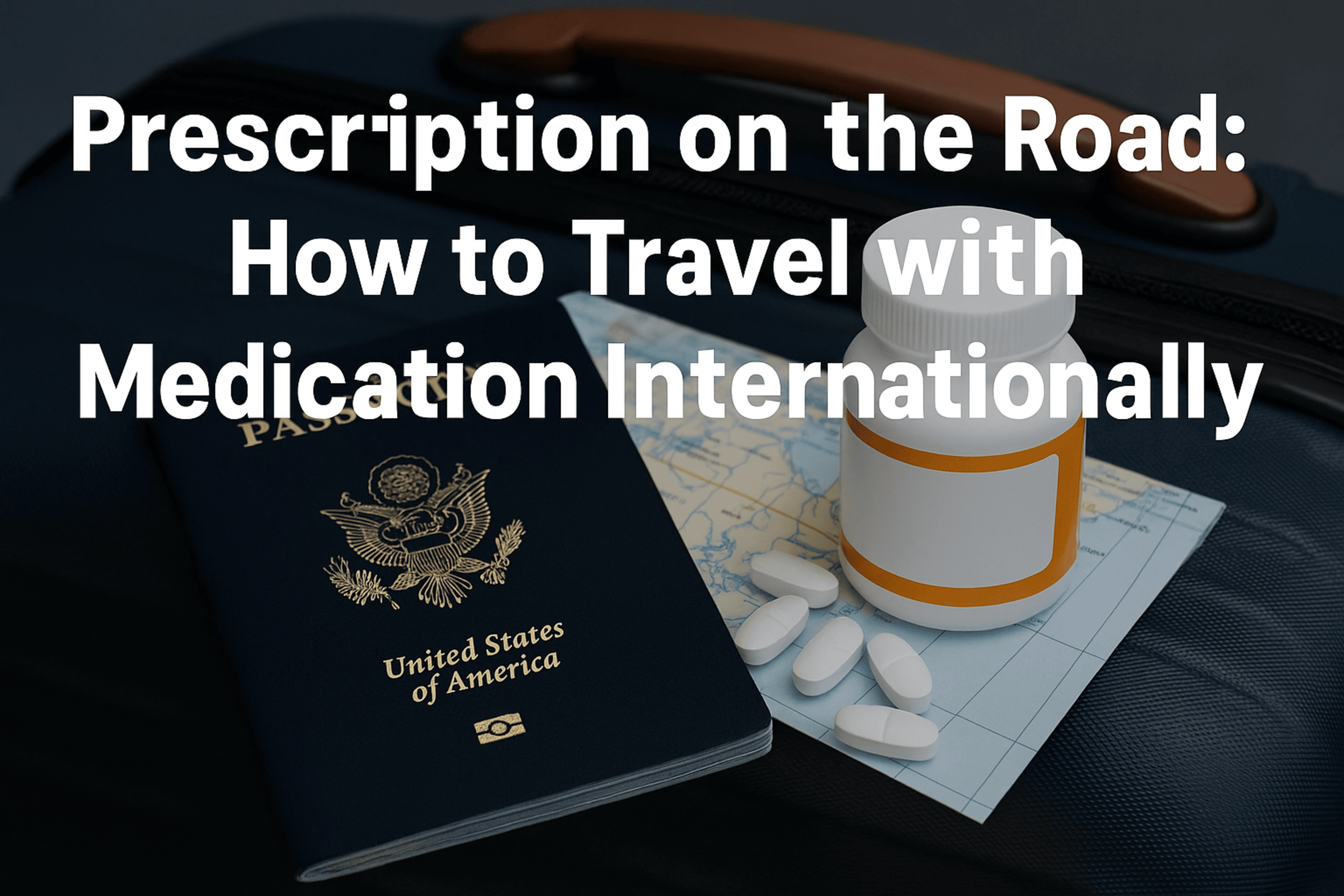Traveling internationally is exciting — new cultures, cuisines, and adventures await. But if you rely on prescription medication, there’s one thing you can’t afford to overlook: how to safely and legally take your medication abroad.
From airport security to customs checks and language barriers at foreign pharmacies, this guide will help you travel smart and stress-free with your essential prescriptions.
✈️ 1. Check Medication Legality in Your Destination Country
What’s legal at home may be restricted — or even banned — elsewhere.
- Stimulants (e.g., ADHD meds), painkillers (opioids), and some anxiety meds (like benzodiazepines) are tightly controlled in many countries.
- For example, Japan prohibits Adderall and pseudoephedrine, while the UAE has strict rules on codeine.
✅ Action Tip:
Visit the embassy website or contact the consulate of your destination country to check if your medication is allowed and if any documentation is required.
📜 2. Bring a Doctor’s Letter or Prescription Note
A signed letter from your doctor can be a lifesaver during customs or in case of emergency.
Include:
- Your name and condition
- List of prescribed medications (generic and brand names)
- Dosage and usage
- Doctor’s contact info
- Reason why the medication is necessary
✅ Bonus Tip:
Keep a copy in your luggage and one on your phone (PDF or photo format).
💼 3. Pack Smart: Carry-On Only
Always pack your medication in your carry-on bag — never checked luggage.
- Keep pills in their original labeled containers.
- Don’t mix different meds in one bottle.
- Carry only a reasonable quantity (usually 30–90 days).
💡 If refrigeration is needed, consider insulated medication travel cases or cool packs with a TSA-compliant note.
🌍 4. Understand Local Pharmacy Systems
If you lose your meds or run out, getting replacements abroad can be tricky.
- Some countries may require a local prescription from a registered doctor.
- Others may offer OTC options, but dosages and formulations might differ.
✅ Download translation apps or carry a multilingual medication info sheet.
🕒 5. Time Zone Tips for Dosage Schedules
Traveling across time zones? Don’t skip or double-dose.
- Gradually adjust your schedule a few days before departure.
- For critical meds (e.g., insulin or epilepsy drugs), ask your doctor to help you map out a new time-based dosage chart.
🧾 6. Carry Copies of Your Prescription
Some pharmacies will honor a written or electronic prescription from your home country — especially if it’s in English and includes:
- Doctor’s signature,
- Medication details,
- Dosage instructions.
Print multiple copies just in case.
🚫 7. Don’t Rely on Foreign Substitutes
Even if a medication looks the same, it may not be. Different countries may use:
- Different ingredients
- Manufacturing standards
- Or similar names for entirely different drugs
✅ Always confirm with a licensed local pharmacist before accepting a substitute.
✍️ Final Thoughts
When it comes to traveling internationally with medication, preparation is your best protection. A few proactive steps can ensure your trip is focused on sightseeing—not scrambling for a refill or explaining your pills at the border.
So pack that passport — and your prescriptions — like a pro.
🌐 Have you traveled internationally with prescription meds? Share your experience or tips in the comments below!


